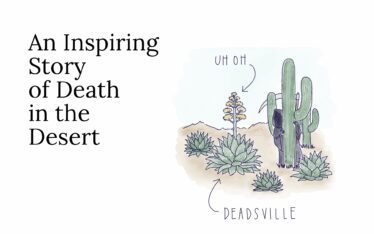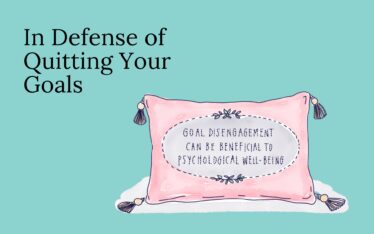Do you ever go back and re-read the notes you took from a class or a conference or event? (Okay so we’re starting with the assumption that you’re a note-taker to begin with, and if you’re not, oh honey, today’s the day your life is going to change for the better! I’ll wait here while you sharpen your new note-taking pencil. Nice and sharp … that’s it.)
The Forgetting Curve
 Our brains are like butterfly nets, which sounds lovely when we’re frolicking around catching monarchs in meadows, but less lovely when we want our brains to hold onto helpful information.
Our brains are like butterfly nets, which sounds lovely when we’re frolicking around catching monarchs in meadows, but less lovely when we want our brains to hold onto helpful information.
Research has proven that we are imbeciles; we forget 112% of what we learned on a Monday by the time Friday rolls around. We forget new information at an exponential rate. Memory is a funny thing because while we ~can~ hold onto facts and ideas, we have to make an effort. Oh, that. Effort. We take a pass on making an effort when we know we can just ask Google for most of the answers anyways.
It’s actually quite efficient for our brains to loosely hold onto new learnings … it would be unreasonable and overwhelming to remember Every Single Nugget we came across at a training class or conference keynote, right?
So what do we do, when the answer isn’t “stop learning new things”? (The answer, by the way, is never to “stop learning new things.”) We take notes. And then we revisit our notes. Studies show time and time again how we learn faster and deeper if we take notes (ideally via handwriting vs. typing away on our laptops, FYI), and that we make newly learned info stickier if we go back and review our notes.
Repetition + review are the engines of learning. Here are three examples…
 One of my clients said something in a recent email [about a workshop I did for her association] that put a spring in my step: “I saved the materials from the COO workshop a couple of years ago so I can review and reflect on what I wrote down. I pulled the material out the other day, just to ground me a little bit on some life decisions that are top of mind.” She didn’t have to check a fact or figure; she was doing this for self-development. Be still my beating heart!
One of my clients said something in a recent email [about a workshop I did for her association] that put a spring in my step: “I saved the materials from the COO workshop a couple of years ago so I can review and reflect on what I wrote down. I pulled the material out the other day, just to ground me a little bit on some life decisions that are top of mind.” She didn’t have to check a fact or figure; she was doing this for self-development. Be still my beating heart!
Years ago, I led a peer advisory board for CEOs, and one of the members took copious notes from the presenters and the words o’ wisdom shared in our meetings. He’d hand-write his notes, then type the key points and ah-ha’s into a spreadsheet back at his office, then re-read them before the next monthly meeting. Guess who got the most out of the meetings? Was it a coincidence that his business results soared?
I recently went down a brainy memory lane by looking at the notes I took in grad school from 2019 – 2020. I cut and pasted snippets of my favorite hand-written notes from my iPad and made a wee little collage out of them (BECAUSE THAT’S THE SHIT THIS GIRL DOES FOR FUN WHEN SHE’S NOT MAKING PALOMA COCKTAILS). Observations after reviewing my reams of notes:
- I am appalled at how much I forgot within just five years. It was startling to see what I once knew, and then completely failed to retain … even stuff I was initially riveted to learn about.
- Learning boomerangs are possible. I feel like I re-learned the content all over again after re-reading my notes … it was like a second master’s degree (without all the pesky essays and tuition fees).
- I had a new perspective on the points I was reading. You know how Heraclitus said, “No man ever steps in the same river twice, for it’s not the same river and he’s not the same man”? Yeah well I think he meant to say, “No person ever reads the same notes twice, for it’s not the same notes and they are not the same person.” Wise man.
Resetting the forgetting curve
We don’t need to or care to remember everything, so most notes are good to be taken and then set aside. But if you want to retain something—whether it’s for boring work reasons or for scintillating personal development reasons—you’re going to want to try two things:
#1: Review your notes within 24 hours of learning the information (ideally with less than two Palomas in you). This seals the juices in; I’ve yet to read a memory research paper that says it’s fine to skip this step. I plan to re-read my “worth remembering notes” before I wrap up each work day or in the morning before I start answering emails.
#2: Practice “spaced repetition,” which means reviewing your notes repeatedly after increasingly large time gaps. So if you’re trying to remember facts and figures for a big work presentation, or words in a new language, review your notes within a day (yes—we already agreed on that one), then the next day, then after five days, then 10, then drink a Paloma.
I love to learn new things, but I’m tired of learning and letting the good stuff fall out of my butterfly-net-of-a-brain. I’m going to get more diligent about taking better notes, reviewing them within a day, and revisiting them in intervals to lock them in. What about you? Are you going to forget all this by tomorrow? Nah. You’re sitting over there taking fastidious notes, aren’t you?!

P.S.: Check out my book, You Only Die Once: How to Make It to the End with No Regrets? So many chances to note-take!
P.P.S.: Let’s do Instagram together?
P.P.P.S.: Oh and just in case you missed it… I’d love you forever if you took 16 minutes out of your life to watch my TEDx talk!






